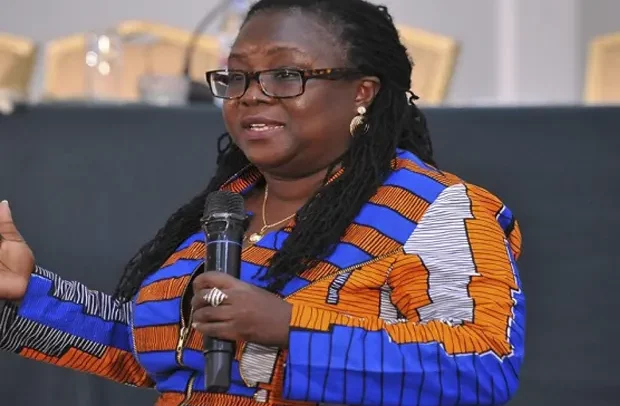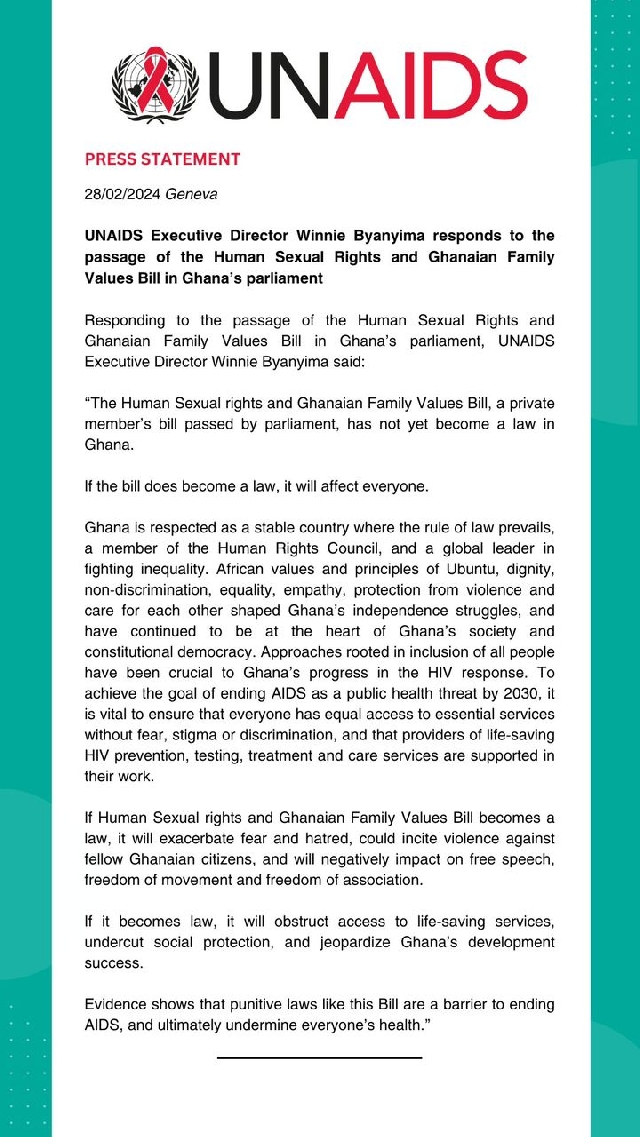
#Egoreachweall campaign calls for Ghanaians to read anti-gay bill
“It depends on what is in the Bill,” this was the response of President John Dramani Mahama when the BBC asked him whether he would sign the controversial Human Sexual Rights and Ghanaian Family Values Bill, popularly known as the anti-LGBT bill.
In the interview aired just three days before the 2024 general elections, Mr. Mahama explained, “I think we must look at the Bill and the president must indicate what he finds wrong with that bill and send it back to Parliament or alternatively he must send it to the Council of state and get the Council of State’s advice.”
In the last few weeks, the top trending conversations on social media platforms show billboards asking Ghanaians to take a closer look at the bill emphasizing that “ego reach we all” meaning “it is going to affect all of us”. Some of the inscriptions on the billboard imply that if you share your views on radio you can go to prison for up to 10 years (clause 10(3) of the proposed bill).
Why should you read this bill?
If you do not read the bill, you would not know how it affects what you say, where you say it, who you interact with and the potential jail time you can serve for not knowing its implications.
The bill does not just put people in prison because they claim to have specific lifestyles which do not conform with acceptable family values. It also affects anyone who interacts with a person who “holds out” as acting in a way or having a lifestyle that does not align to these family values.
Although it remains unclear what holding out means, this could make it a crime to express views that do not align with standards the proposed legislation sets on proper family values and bans forming groups, which have objectives that could appear to compromise these standards or promote certain lifestyles.
What are these standards?
The bill suggests that depending on how you dress, walk, talk, who your friends are, who you allow to rent your property or who you provide services to you could be undermining the proper family values and breaking these standards, so you could go to jail.
According to the bill, the only family values to have are that the sanctity of marriage should be respected, that it should be a lifelong relationship between a man and a woman, that it is the basic unit of the society, that parents, teachers and guardians should teach this to their children and that the government should protect and advance this.
The bill requires each person to report suspected relationships or behaviors that do not align to these family values to authorities as well as anyone who expresses a view that who a man is or who is woman may not be dependent on the gender they were assigned to at birth.
What are the consequences for undermining these family values?
Undermining these family values would imply a range of actions including disrespecting the institution of marriage and a failure to recognize that the family that does not have a man and a woman is the basic unit of the Ghanaian society or that marriage between a man and a women should be lifelong (clause 3, clause 19).
People who express any degree of tolerance for views other than the accepted family values could also face jail time. If these views are expressed on technological platforms like social media, TV or radio it could lead to up to 10 years imprisonment.
For instance, to express one’s views on radio in a way that is contrary to the view that marriage is a lifelong relationship between a man and a woman could be deemed to be promoting an improper family value and could lead to jail time for up to 10 years. Media outlets, publishers, and even social media users could face censorship or punishment for airing content that does not align with the bill’s standards.
Did you know there is a duty to report and an obligation to not support?
The bill also makes it a criminal offence for individuals or entities to offer any kind of assistance, whether material, emotional, or legal, to people who do not align with its position on what proper family values are.
These provisions have implications on services including property rentals, medical services, legal services and even support from pastors, Imams and other clergy. For instance, doctors and counsellors may face criminal charges if they offer care without reporting the patient’s sexual orientation, potentially pushing vulnerable people away from critical healthcare services.
Family members could be required to report relatives who are suspected of engaging in such activities or perceived to be involved in such activities because of certain aspects of their lifestyle including how they dress, wear their hair, how they talk or walk. This duty to report suspected behaviour could lead have implications on the existing laws surrounding privacy and disclosure.

In conclusion, the proposed Human Sexual Rights and Ghanaian Family Values Bill carries far-reaching implications that extend well beyond certain groups which the Ghanaian society may have low tolerance for. Its sweeping provisions risk criminalizing basic freedoms of expression, association, and privacy for all Ghanaians.
The bill not only defines “proper family values” in narrowly restrictive terms but also imposes harsh penalties for perceived deviations or expressions of tolerance.
Understanding its content is not just a matter of awareness but of safeguarding rights and freedoms that affect us all. The question is not whether the bill targets one group or another—it is whether it upholds or undermines the democratic principles that form the foundation of our society.
The post The anti-gay bill and matters arising appeared first on The Business & Financial Times.
Read Full Story





















Facebook
Twitter
Pinterest
Instagram
Google+
YouTube
LinkedIn
RSS